Today, AMD launched its newest client GPU architecture, and two GPUs based on the new architecture. AMD is leaning into the chiplet approach to go after another target. This time, that target is NVIDIA. New Radeons from the company, the AMD Radeon RX 7900 XTX and RX 7900 XT are set to be price competitive with NVIDIA as well.
AMD RDNA 3
AMD’s new RDNA 3 architecture has 58 billion transistors and up to 24GB of GDDR6 memory.
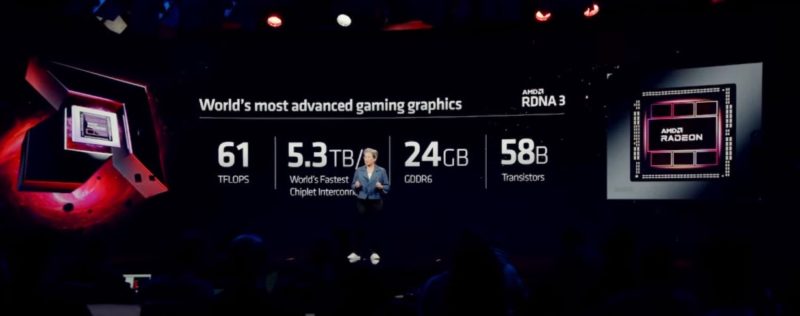
What AMD is doing is putting its memory controllers and Infinity Cache in Memory Cache Dies (MCD) and then the main GPU functions in the GCD or Graphics compute die. That means where NVIDIA is using one die, AMD is using seven. AMD is also able to build the MCD on 6nm instead of more expensive 5nm. For some context, Amazon AWS has put its memory controllers on chipsets outside the Graviton3.
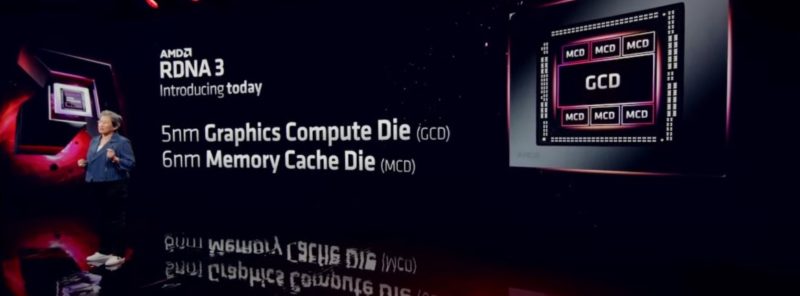
The GCD is 300mm2 while each of the six MCDs are 37mm2.
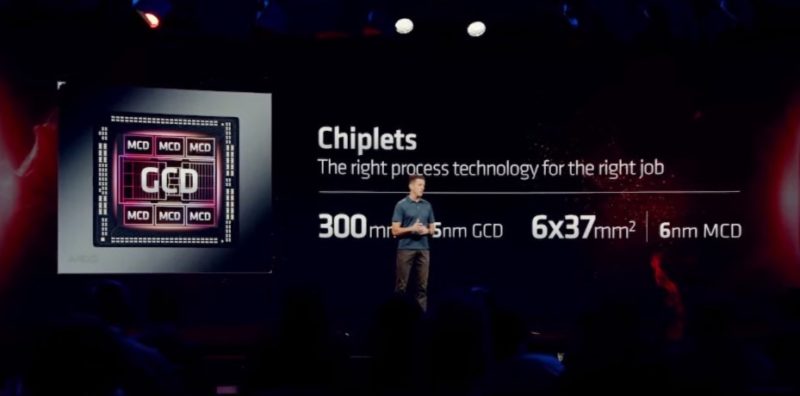
Here is the headline features for the new RDNA 3.
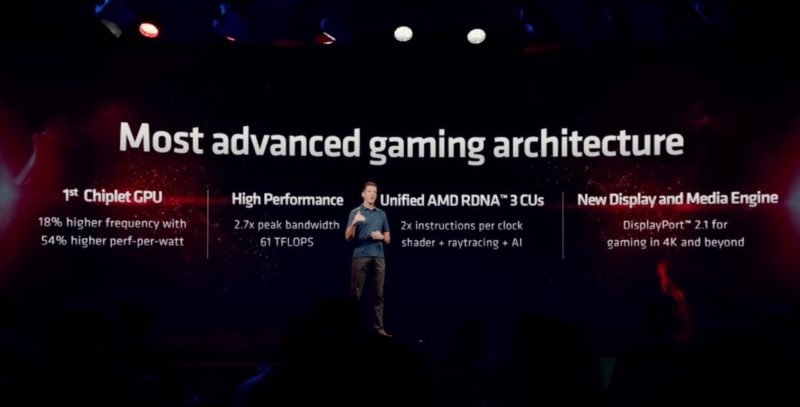
AMD says the new memory cache die with 2nd Gen Infinity Cache offers 2.7x the bandwidth of its first generation at 5.3TB/s.
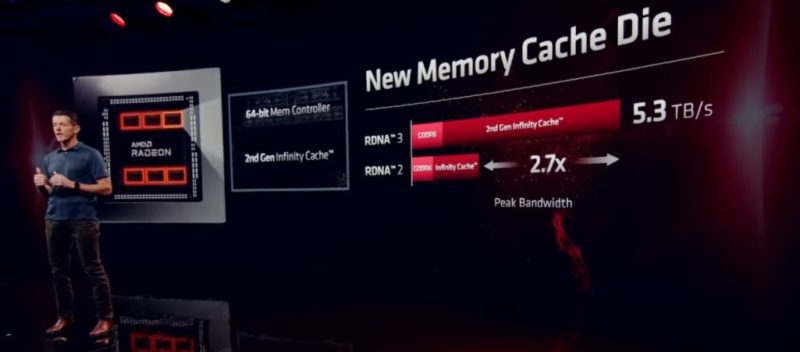
On the GCD side, 5nm helps the company get more transistors in the same area.
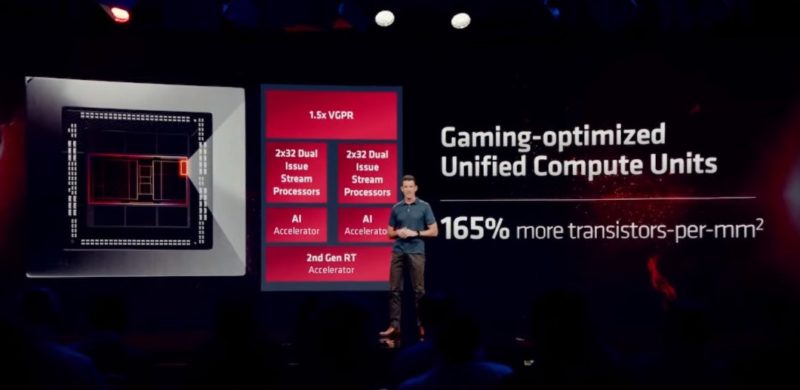
For the compute side, there are now 2×32 dual issue SIMD units.
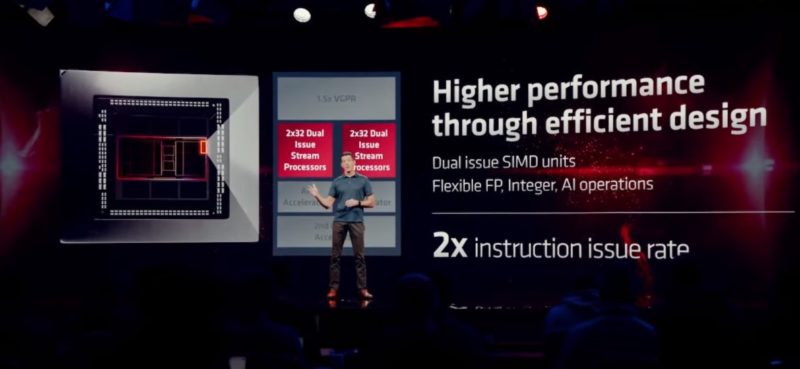
AI acceleration improves by 2.7x. That is the same figure as the memory bandwidth from Infinity Cache on the MCD, and that seems strange that they are the same.
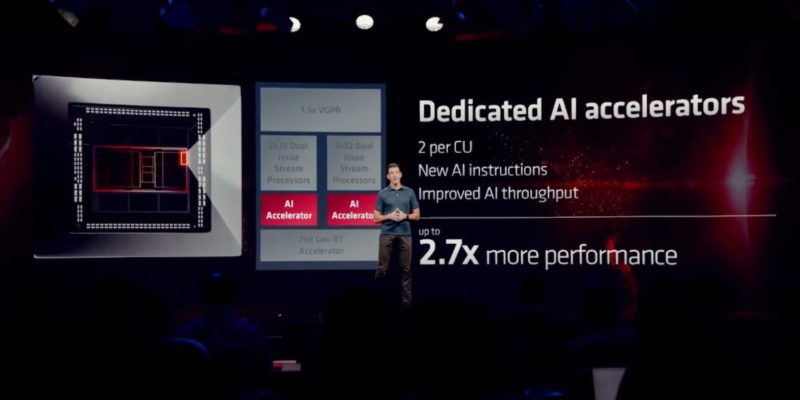
AMD says they have more ray tracing performance.
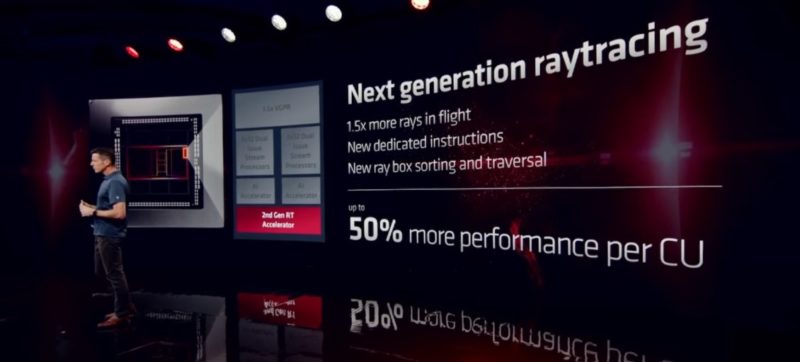
AMD is making its front end clocks higher than the shader clocks to lower power on the shader clock array while helping to feed the compute units better.
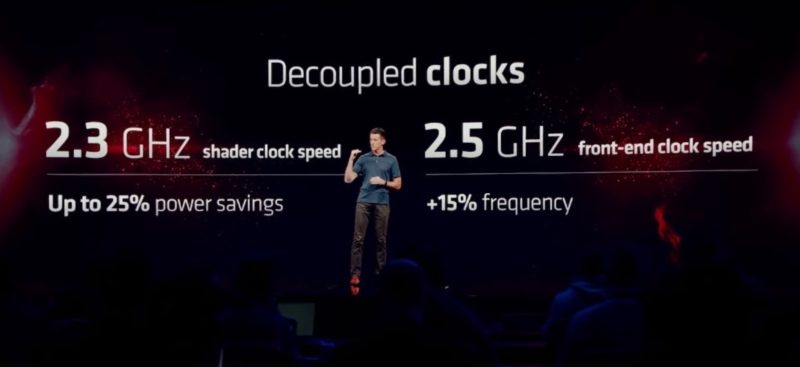
AMD is making a big deal about the fact it has DisplayPort 2.1 and NVIDIA does not. We expect DisplayPort 2.1 monitors next year, so this buying ahead of the monitor curve.
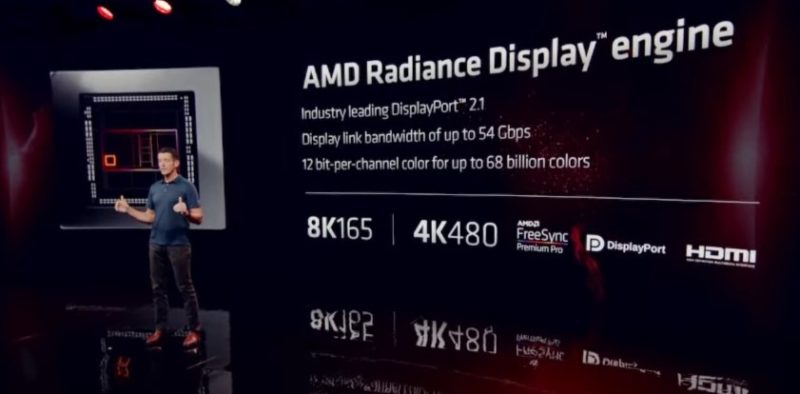
AMD has a new dual media engine with AV1 encode/ decode, and more.
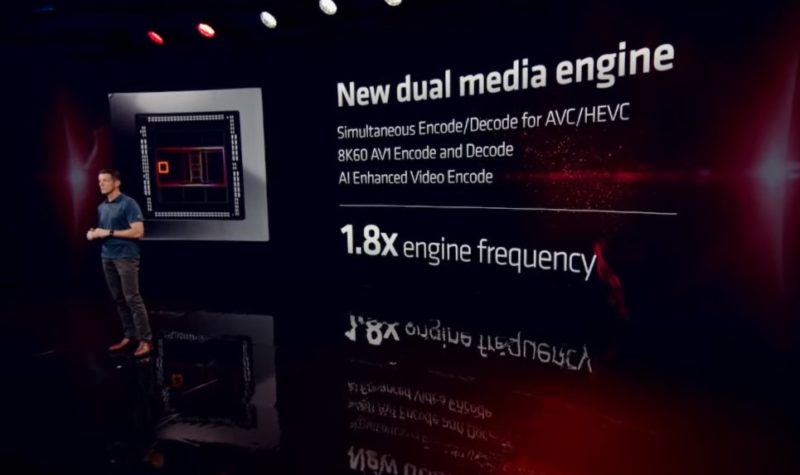
Overall, AMD is doing something very different than what NVIDIA is doing with its Ada Lovelace series.
AMD Radeon RX 7900 XTX 24GB and RX 7900 XT 20GB
RDNA 3 is the architecture, but what you buy is actually a GPU. For that, the top-end part is the AMD Radeon RX 7900 XTX with 24GB of memory, 96 CUs, and “only” 355W.
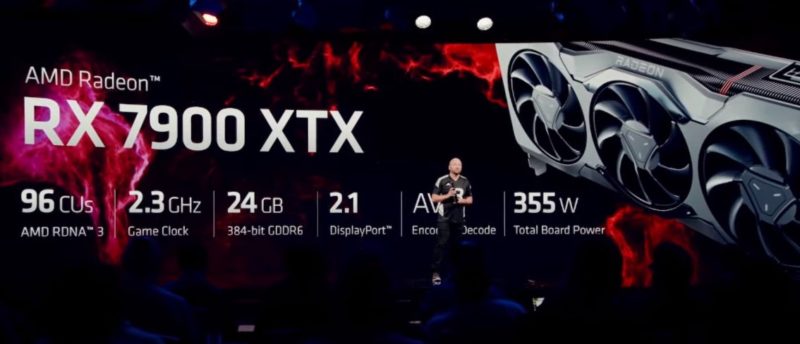
The AMD Radeon RX 7900 XT is the 20GB 84CU part with 20GB of GDDR6. It also is only a 300W part.
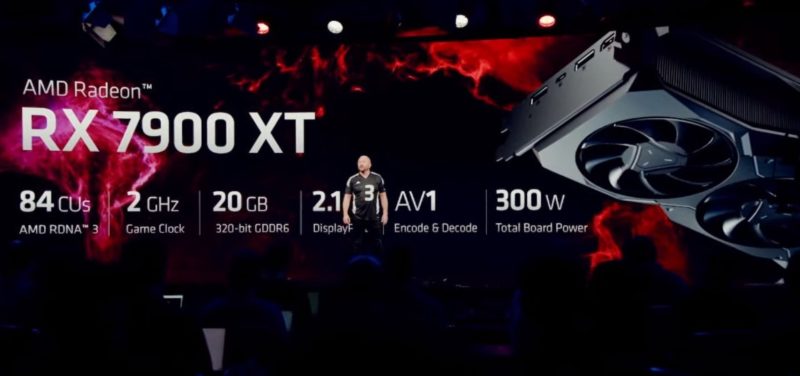
The big point, however is that they will be available December 13, 2022, and the pricing. The RX 7900 XTX is $999 while the RX 7900 XT is $899.
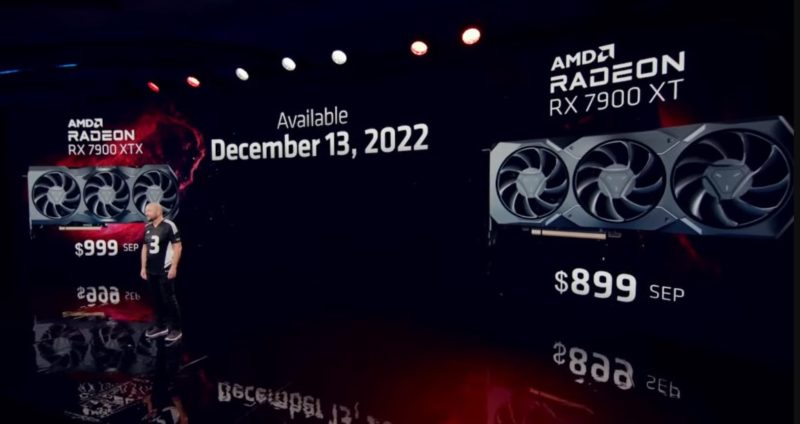
AMD also took a few more digs at NVIDIA saying that its GPUs were around the same size and power as the outgoing series. NVIDIA has seen the new PCIe Gen5 power connector melt and people need larger cases due to the cooler sizes.
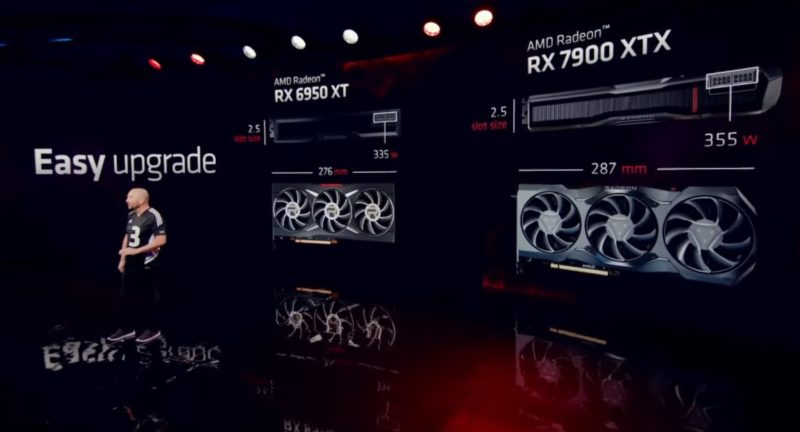
We expect desktop GPUs will need to be liquid cooled like CPUs will soon be, and data center GPUs will need to be soon.
Final Words
Perhaps the biggest advancement here is that AMD is putting NVIDIA on notice. It is trying to pull a similar trick that Ryzen did on Intel core, but on NVIDIA’s GeForce. Between RDNA 3 pushing NVIDIA at the high-end and Intel Arc pushing NVIDIA at the lower end, in a contracting market, this is going to be a fun space to watch. What is becoming clear is that AMD is becoming a leader in introducing mass market chiplets.


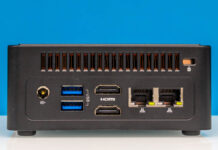


4080 competitor at best – unless you turn on RT – which causes this card to be worthless.
It’s over 4090 in raster, if you don’t play RT titles or need it for professional tasks it’s a no brainer pick
Per TPU its double precision is 1:16 and not the terribly common 1:64. Multi teraflop fp64 might no longer be restricted to datacenter GPUs or 5 year old ebay finds. Still wish AMD would go back to HBM on consumer cards, especially when power use is so high already but these are looking like good cards.
Seriously, you can do better than this: “For that, the top-end part is the AMD Radeon RX 7900 XTX with 24GB of memory…”
It sounds more like AMD is leaving headroom for a 7950 XTX. Similar to Nvidia and their TI’s.